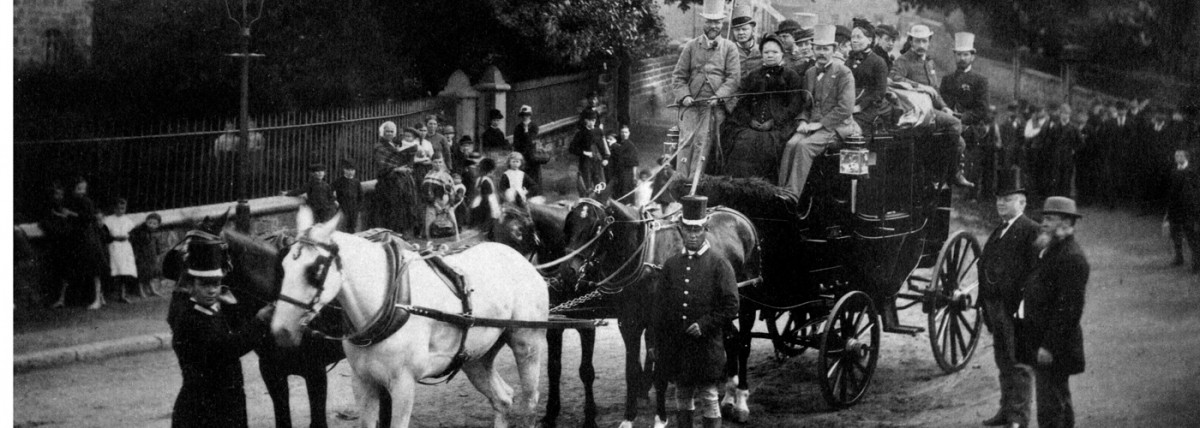History is clear: Innovation will remove animals from industrial systems

“If we can grow the meat without the animal, why wouldn’t we?”
This was not some hippie wishing for a vegan Star Trek future. This was Tom Hayes, CEO of Tyson Foods, the largest meat producer in the United States, quoted in a cover story for the journal of capitalism, Bloomberg Businessweek.
For most of my adult life, I worked on the demand side of the meat market — trying to get people to shun meat. In these efforts, I viewed Tyson and their marketing might as the enemy.
For decades, I led some of the largest, most innovative meat-reduction and pro-vegan campaigns. Yet when I look beyond my friends’ posts on Facebook, the data is stubbornly clear. Animal Charity Evaluators’ review of all the significant studies found that the percentage of people in the United States who call themselves “vegetarian” and actually don’t eat any meat hasn’t really changed since the 1990s. More importantly, the average person will eat more animals and more meat this year than ever before.
With their continued success, why would Tyson’s CEO dream of slaughter-free meat, especially when saying so angered many current meat producers?
Because he’s stating the obvious: Using animals is not the point of Tyson’s business.
I have talked with top executives there and many others in the global meat industry, and not one of them is wedded to the idea of raising and slaughtering animals. They are dedicated to producing high-quality protein for the world’s growing population. Protein, not animal agriculture, is their business.
There is no reason for them to be coy. I have no power over them, no sway over their Board of Directors. Indeed, talking fondly to Business Week about clean meat only creates grief for them from people invested in the current system. Cattle ranchers clearly and correctly recognize clean meat as an existential risk to their particular way of producing meat — that is why they, not Tyson or Cargill, are pushing label-censorship bills in an attempt to undermine clean meat before it even hits the market.
I understand that a black-and-white narrative is very attractive. Good guys and bad guys. The bad guys can’t change so the good guys can and must crush them. But in addition to ceding the high ground in how we address problems (do we really want to be the side of “crush them”?), this is just silly; at a time where meat consumption is at a record high, it is worth getting out of our own bubble and working in our shades-of-grey world.
And there are many historical reasons to give up a simple, binary narrative of good vs evil.
I am old enough (and have been vegan for long enough) to remember when soymilk (and there was only soymilk) was exceedingly hard to find. But then the major dairy company Dean Foods bought White Wave and marketed their Silk soymilk right in the dairy aisle. Now, plant-based milk is fully 13% of the retail market in the United States and still growing strong, while cows’ milk sales are in freefall.
The CEOs and CFOs and Chief Marketing Officers of the world’s largest meat companies are keenly conscious of what has been happening in the milk market. They are also acutely aware that there is a lot of underlying discomfort with current meat production (as noted here). Yes, this discomfort isn’t enough to cause many people to give up meat, but people are clearly on the lookout for better meat that doesn’t require them to sacrifice taste, price, and convenience. We can see this in the wild reaction to products from Beyond Meat and Impossible Foods.
So even if the Tysons, Cargills, and PHWs of the world actively disliked animals and were thrilled by slaughterhouses, these companies care about their bottom line even more. This is the simplicity of our capitalist system: give people what they want but produced in a better way and ultimately, consumers will choose it.
Some might think plant-based and clean meat will always be sold alongside factory-farmed meat. But how could that possibly be? That’s like arguing that oxen and horses will continue to be used for plowing fields and cross-country travel once we have tractors and automobiles. Why would companies keep producing factory-farmed meat if plant-based and clean meat were more profitable? They wouldn’t. Of course.
History has shown this over and over. Just look around. We don’t use horses for transportation, we don’t use oxen for plowing, we don’t kill whales for oil, we don’t use pigs for insulin, we don’t use carrier pigeons for mail. There is no historical example where creating a better alternative to animals has entrenched the industrial use of animals.
Every time we’ve innovated to take animals out of industrial systems, we’ve created an industry that is more stable and more profitable. The better, animal-free way becomes the status quo.
This can happen in food, too. Big dairy was the key to setting in motion the marketing revolution that is undermining the use of cows for milk. Big meat — aka, big protein — can play the same role in transforming meat production to an animal-free system.

